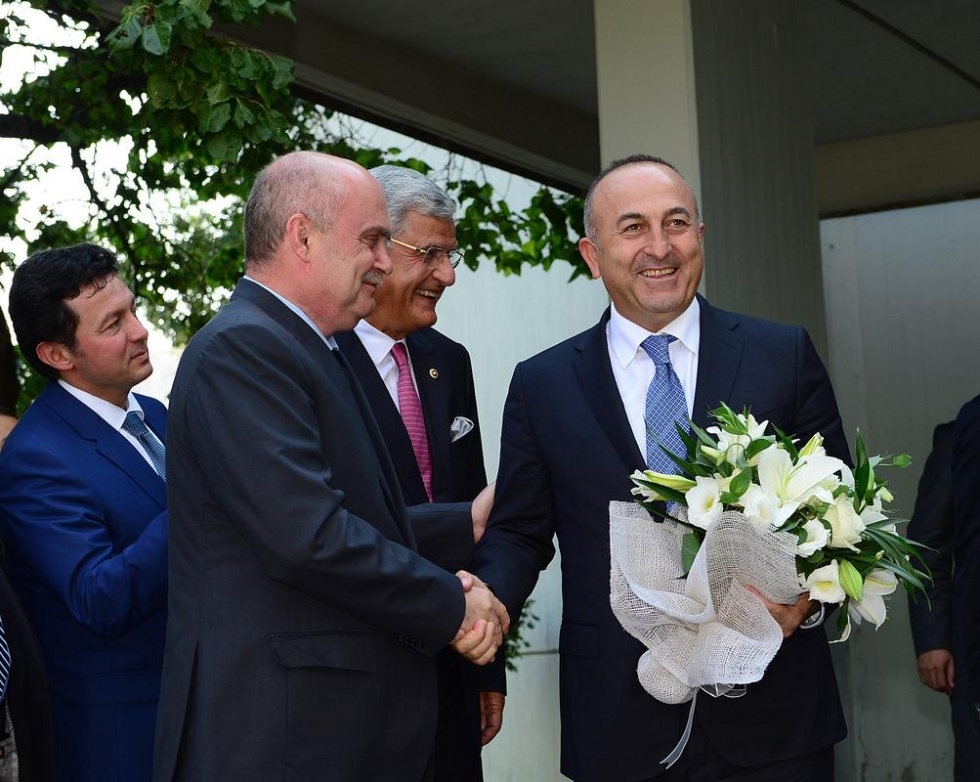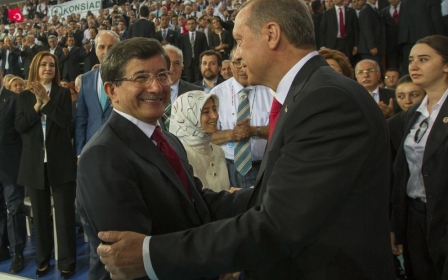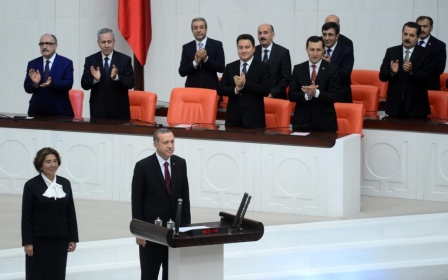Profile: Who has joined Davutoglu's cabinet?

Professor Numan Kurtulmuş, 55, a former Istanbul economics professor and leading conservative in the AKP, is Friday's most significant promotion, coming from a position in the party only to be one of Turkey’s four deputy prime ministers. Kurtulmuş comes from a family which has been staunchly Islamist throughout the history of the Turkish Republic. Most of his political life was spent following Professor Necmettin Erbakan, Turkey’s first Islamist prime minister. He distinguished himself as an exceptionally able campaigner, but was eventually thrown out of the Welfare Party by Erbakan who wanted his son to take it over. After a spell on his own, Kurtulmuş joined the AKP in 2012 as one of its deputy chairman. The fact that he has joined the cabinet before becoming a parliamentary deputy is a reflection of his strong following in the country. A shrewd heavyweight in politics, Kurtulmuş has moved carefully inside the AKP, tweeting regularly in Turkish, English, and Arabic and offering carefully worded opinions to his followers. Many AKP supporters regard him as a natural successor to Erdogan, but Kurtulmuş would never allow himself to be seen as any kind of rival to the leader.
Yalçın Akdoğan, 45, until this week Mr Erdoğan’s closest adviser, also becomes a deputy prime minister. A former journalist and academic in Istanbul who entered parliament in the 2011 elections, he seems to have masterminded work on the AKP’s domestic and international image.
Mevlüt Çavuşoğlu, 46, becomes foreign minister following eight months as minister for European affairs after stepping in to replace Egemen Bağış, one of the ministers associated with Turkey’s short-lived corruption scandal last December. Having received higher education in the US and London, Çavuşoğlu is highly fluent in English and spent most of the AKP’s first decade in power serving in the Parliamentary Assembly of the Council of Europe, being elected its first Turkish president in 2010. As foreign minister, however, he will follow Turkey’s foreign policy concentration on the Middle East and support for the Muslim Brotherhood in Syria and Egypt. During the 30 March 2014 local elections, he raised some eyebrows after reportedly looking in on the election count in his home province of Antalya.
Volkan Bozkır, 64, the new minister for EU affairs, is a career diplomat by background who represented Turkey to the EU in Brussels from 2005-2009. He later served as Secretary-General for EU relations before joining the AKP at the last general elections when he was elected as member of parliament for Istanbul. With Turkey’s accession negotiations with the EU currently at a very low ebb, Bozkır’s brief will likely be to ensure that the negotiation process remains alive, a goal which is probably attainable since, despite all the difficulties, neither Brussels nor Ankara currently looks eager for an open rift.
For many people however, the most important news is that Ali Babacan, the Deputy Prime Minister for Economic Affairs, and Mehmet Şimşek, the Minister of Finance have not been moved. Babacan, in particular, was thought to be ready to leave politics and to have fallen from favour because of his support for conventional economic policies on interest rate hikes. His reappointment likely indicates that the prime minister and his advisers have listened to the messages coming from the markets not to appoint any of the more radical, economically anti-Western figures in the AKP.
Stalwarts such as Bülent Arınç will stay on, though their influence may now be on the wane. Only three ministers were dropped from the cabinet. The most significant figure to be dropped was Beşir Atalay, a deputy prime minister and former minister of the interior who played an important part in talks with the Kurds over the ‘Peace Protest’. As a close Erdogan loyalist, he had been expected to remain in place at a time when negotiations with the Kurdish leadership are one of the government’s highest priorities.
New MEE newsletter: Jerusalem Dispatch
Sign up to get the latest insights and analysis on Israel-Palestine, alongside Turkey Unpacked and other MEE newsletters
Middle East Eye delivers independent and unrivalled coverage and analysis of the Middle East, North Africa and beyond. To learn more about republishing this content and the associated fees, please fill out this form. More about MEE can be found here.




